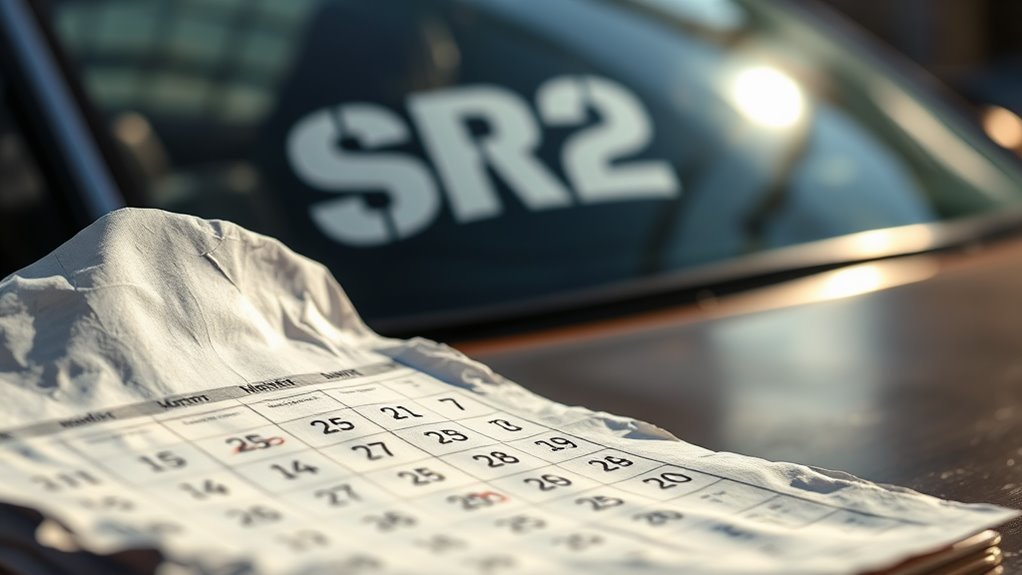
Did you know that SR-22 insurance typically lasts for three years after a serious traffic violation? This duration can vary greatly based on the nature of your offense and state laws. Maintaining continuous coverage during this period is crucial, as lapses can lead to serious penalties. So, how do you verify you're covered without facing additional complications? Understanding the ins and outs of SR-22 insurance can help you navigate this challenging landscape.
When you find yourself needing SR-22 insurance, understanding its duration is essential for maintaining your driving privileges. Typically, SR-22 insurance lasts for three years following a serious traffic violation, such as a DUI. However, the specifics can vary based on the nature of your infraction and state regulations. For more severe offenses, like multiple DUIs or reckless driving, your requirement for SR-22 coverage could extend up to ten years. It's vital to recognize that SR-22 isn't a lifetime obligation; it's a temporary measure to demonstrate compliance with insurance laws. Additionally, understanding the affordable SR22 insurance options available can help ease the financial burden during this period.
The type of driving offense you've committed plays a key role in determining how long you'll need to maintain SR-22 coverage. For example, while a single DUI usually necessitates three years of coverage, a pattern of multiple offenses can push this duration even longer. Each state has its own regulations, so the exact duration can differ. In some cases, reckless driving may also lead to extended SR-22 periods, underscoring the importance of understanding your local laws.
The duration of SR-22 coverage varies by offense and state, with multiple violations leading to longer requirements.
Maintaining continuous SR-22 coverage is paramount. Any lapse can lead to dire consequences, including the suspension of your driving privileges. If you happen to miss a payment or switch insurance providers without ensuring your new policy meets SR-22 requirements, you'll need to report these lapses to your state's DMV immediately. Failing to do so can result in additional fines and penalties, making it even more essential to stay on top of your insurance status. Continuous coverage not only keeps your legal driving privileges intact but also helps you build a better driving record over time. SR-22 insurance must be maintained during this period to avoid complications.
The costs associated with SR-22 insurance can be higher than standard auto insurance due to your classification as a high-risk driver. For instance, in California, the average SR-22 premium is considerably elevated compared to regular premiums. Various factors influence these costs, including your driving history and the type of vehicle you own. Filing fees typically range from $15 to $50, which can add to your overall expenditure. To find more affordable options, it's advisable to compare quotes from multiple insurance providers.
If you're in a situation where you require SR-22 insurance, you'll need to meet specific eligibility criteria. Most commonly, drivers convicted of serious traffic offenses like DUIs or reckless driving will find themselves in this position. Even those who've had their licenses suspended for driving without insurance must adhere to these requirements.
Curiously, if you don't own a vehicle, you can still obtain a non-owner SR-22 insurance policy, ensuring you remain compliant with state laws.
Conclusion
In conclusion, cheap SR-22 insurance typically lasts for three years, but it can extend up to ten years for severe violations. Maintaining this coverage is essential; a staggering 30% of drivers fail to uphold their SR-22, risking additional fines and license suspensions. To avoid these pitfalls, make sure you stay covered throughout your designated period. Remember, every day counts, and even a single lapse could lead to significant complications with the DMV. Stay informed and protect your driving privileges.
